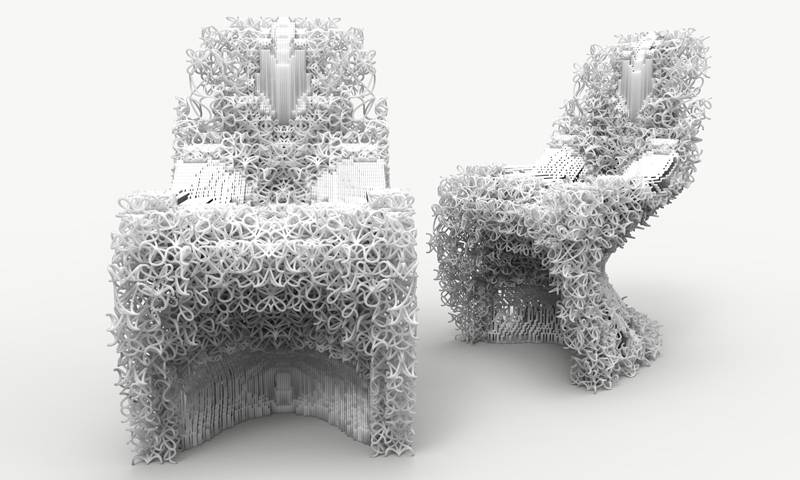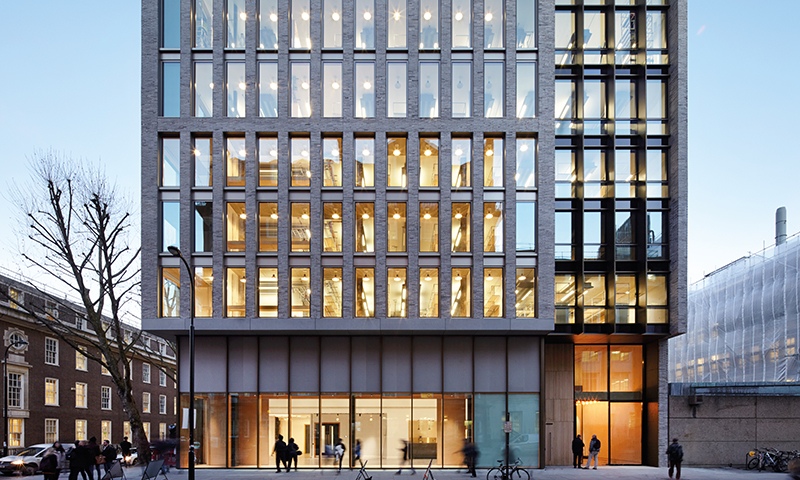 Overview
Overview

Architecture & Digital Theory MPhil/PhD allows students to produce original research in areas related to computational tools, applied to design and regardless of scale, historical timeframe or methodological approach. Students produce a doctoral thesis consisting of an original piece of writing with supplements allowed in any format suitable to the respective research subject.
View the UCL prospectus page for this MPhil/PhD
Structure
During their first year, students may be required to audit at least two modules from Architecture & Digital Theory MRes, including all assignments and tasks. Submissions and exams of audited modules will not be marked, but feedback will be provided.
From their first year, students will attend and participate in the monthly sessions of a research seminar with student-led sessions and lectures by invited guests, open to the faculty and students from other programmes.
Research topics
Research topics could be related to the following areas of interests:
- Digital design and fabrication
Notational languages and design-to-production integration. History and criticism of design and fabrication software and of digital styles: from spline modeling and parametricism to computation and discretization. Designing with Big Data and the challenge of complexity: generative, agent-based design and cellular automata.
- Image theory and theories of digital replications
From pixel to voxel: 3D scanning, 3D printing and voxelization. 'New materiality' and structural design: granularity, variable properties materials, bio-technologies. From Finite Element Analysis to the "new science" of simulation and optimisation.
- From machine to body
The new body-machine interfaces and prosthetic apparata; scanning, sensing, virtual and augmented reality, immersive and interactive environments, from wearables to the domestic, urban and territorial scales.
- From bodies to collective intelligence
Datascapes, real-time mapping, GIS and socio-political geography, landscapes and biotech control; technologies of simulation for urbanism and planning. Geospatial cyberinfrastructure.
- Philosophy and aesthetics of digital environments and digital art
Indeterminacy, non-linearity, complexity, object oriented ontology, artificial intelligence and post-scientific determinism.
- Cognitive aspects of design computing systems
Intelligent support in design and in the built environment.
- The political economy of digitally driven environments
The new markets, pricing, and business models of digital granularity. The "zero marginal cost society". Multi-modal applications and data analysis.
- History of digital tools for notation and fabrication
From manual to mechanical to electrical to electronic; from Alberti's geometrical and number-based replication machines to early CAD-CAM in the 20th century. History of quantification in design and of design processes as cultural technologies: geometry and projections, numeracy and the rise of formalization in early modern architectural theory. The modern analytic approach to structural design, from Galileo to F.E.A.
Supervisors
- Professor Frédéric Migayrou, Director
Frédéric Migayrou is Chair, Bartlett Professor of Architecture at The Bartlett School of Architecture and Deputy Director of the Musée National d'Art Moderne, Centre de Création Industrielle at the Centre Pompidou Paris. He was the founder of the Frac Center Collection and of ArchiLab, the international festival of Prospective Architecture in Orléans.
Aside from recent publications and exhibitions (such as Le Corbusier, Centre Pompidou 2015), he was the curator of Non Standard Architectures at the Centre Pompidou in 2003, the first exposition devoted to architecture, computation and fabrication.
More recently he has curated Japan Architects 1945-2010 (21st Century Museum of Contemporary Art, 2014), Frank Gehry (Foundation Louis Vuitton, Paris 2014) and Naturalising Architecture (ArchiLab, Orléans 2013). In 2012 he founded B-Pro, a suite of postgraduate architecture and computation programmes at The Bartlett.
- Professor Mario Carpo, Director
Mario Carpo is the Reyner Banham Professor of Architectural History & Theory at The Bartlett and Co-Director of the Programme Architecture & Digital Theory MRes.
His area of specialisation is the history of architectural theory and cultural technologies, with a focus on the early modern period (the Vitruvian tradition and the Italian Renaissance, from Alberti to Vignola) and on contemporary digital design theory (1990 to the present).
- Roberto Bottazzi, Supervisor
Roberto Bottazzi is a Lecturer in Architecture at The Bartlett and Programme Director of the Urban Design MArch. His research focuses on the aesthetic, design, spatial and philosophical impact of digital technologies on architecture and urbanism.
- Dr Christopher Leung, Supervisor
Dr Christopher Leung is an Associate Professor at The Bartlett School of Architecture, whose research areas include: prototyping through digital modelling, simulation, fabrication and instrumented testing as a modus operandi for design research; timber construction and sustainable approaches to the design of timber buildings; passive low-energy actuator technologies (phase-transitioning waxes, thermo-bimetals, shape memory alloys) for environmental control in buildings; digital and hybrid digital-analogue control systems for facade systems; solar energy; passive cooling with optically selective radiators; embodied mechanical logic; advanced manufacturing processes e.g. design for multi-material polymer printing.
- Ava Fatah gen Schieck
Ava Fatah gen Schieck is an architect and Reader in Media Architecture and Urban Digital Interaction at The Bartlett. She specialises in human-computer interaction and performance, with a focus on sensory environments and human behaviour within the built environment when mediated through Mixed Reality, AR, VR, and Ubiquitous Computing.
Ava lectures internationally and has published extensively on the transformation and acquisition of urban space through new media. She has also been a chair and member of the committee for the Media Architecture Biennale in 2012, 2014, 2016 and 2018.
Careers
The Bartlett School of Architecture is one of the world's top-ranked architecture schools and our students enjoy excellent employment opportunities. Upon completion of their PhDs, Bartlett students have gone on to pursue careers in a wide variety of fields, including academic roles.
Contact
Programme Director: Prof Mario Carpo and Prof Frederic Migayrou
Departmental Tutor: Ava Fatah gen. Schieck
Programme Administrator: Emmy Thittanond
Image: MArch Architectural Design, Wonderlab, RC1, White Rabbit ‘Alien Resolution’, 2016
Architecture Close
Close


